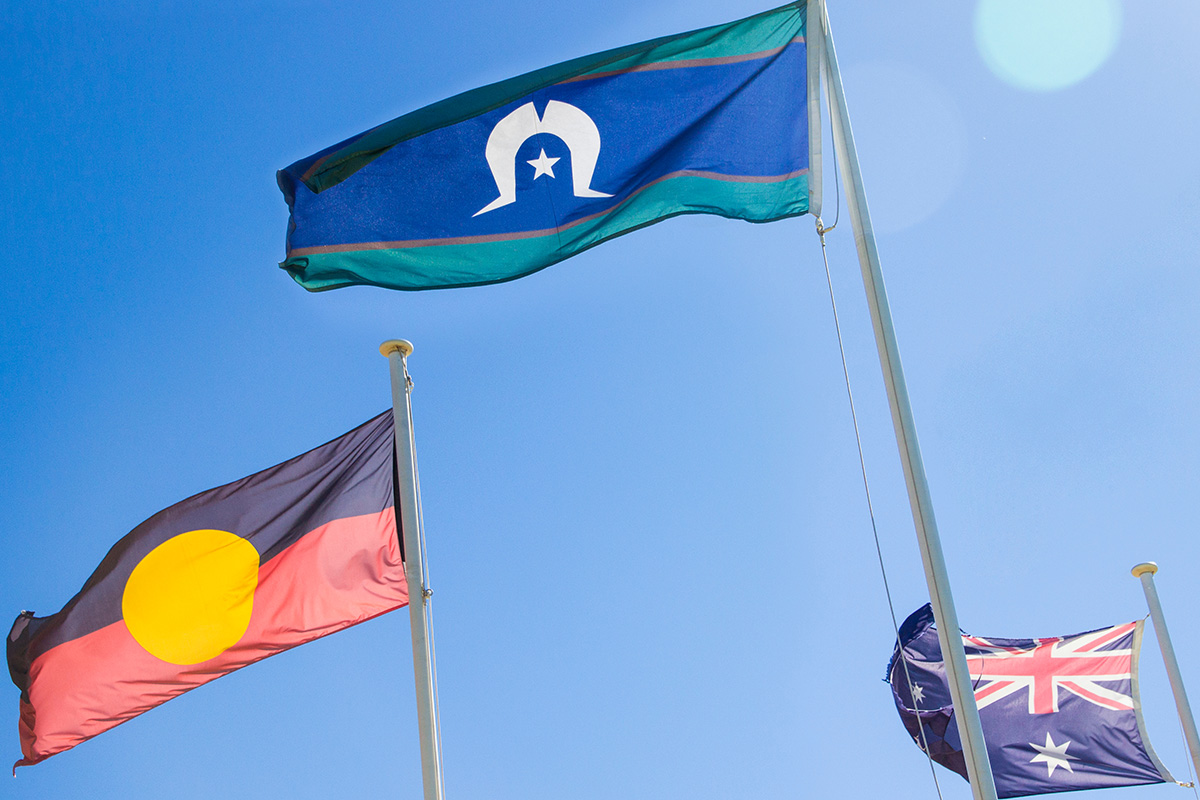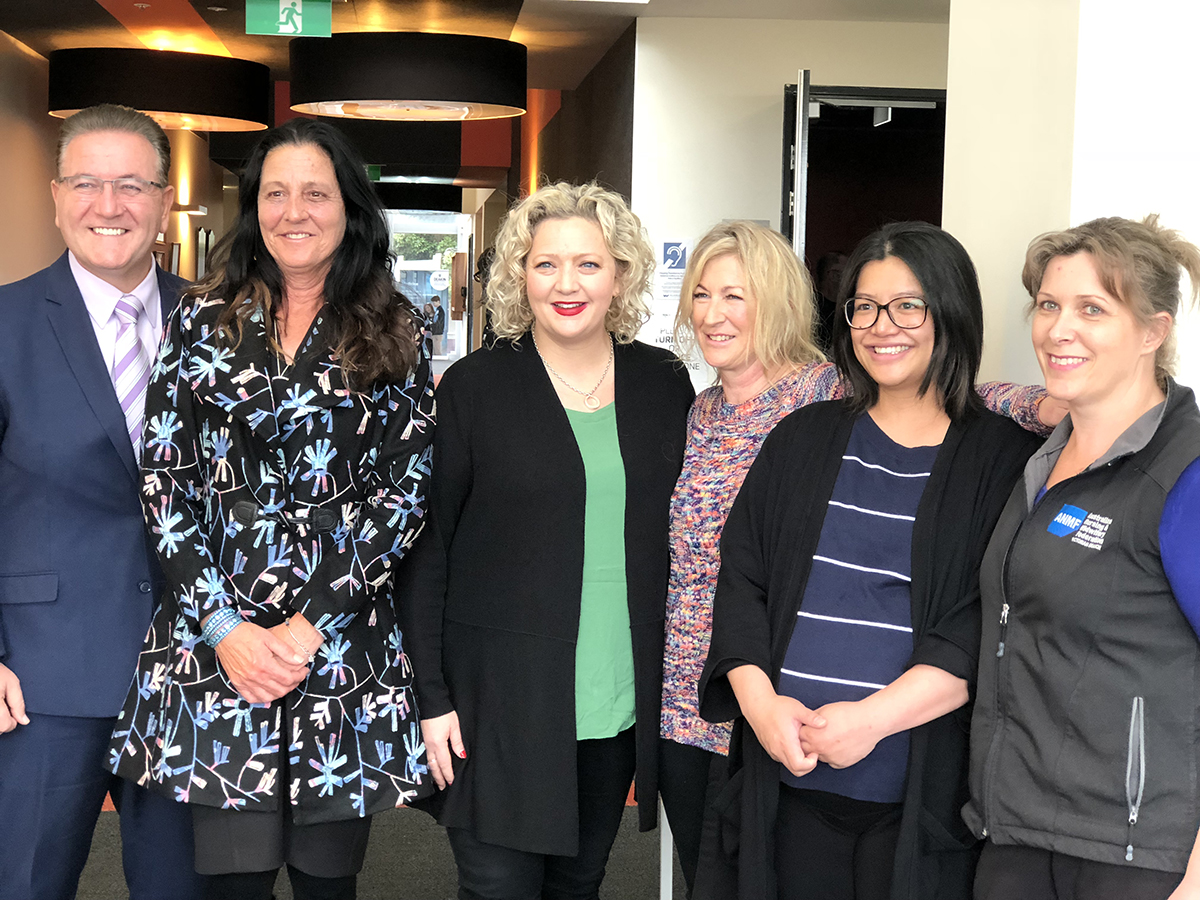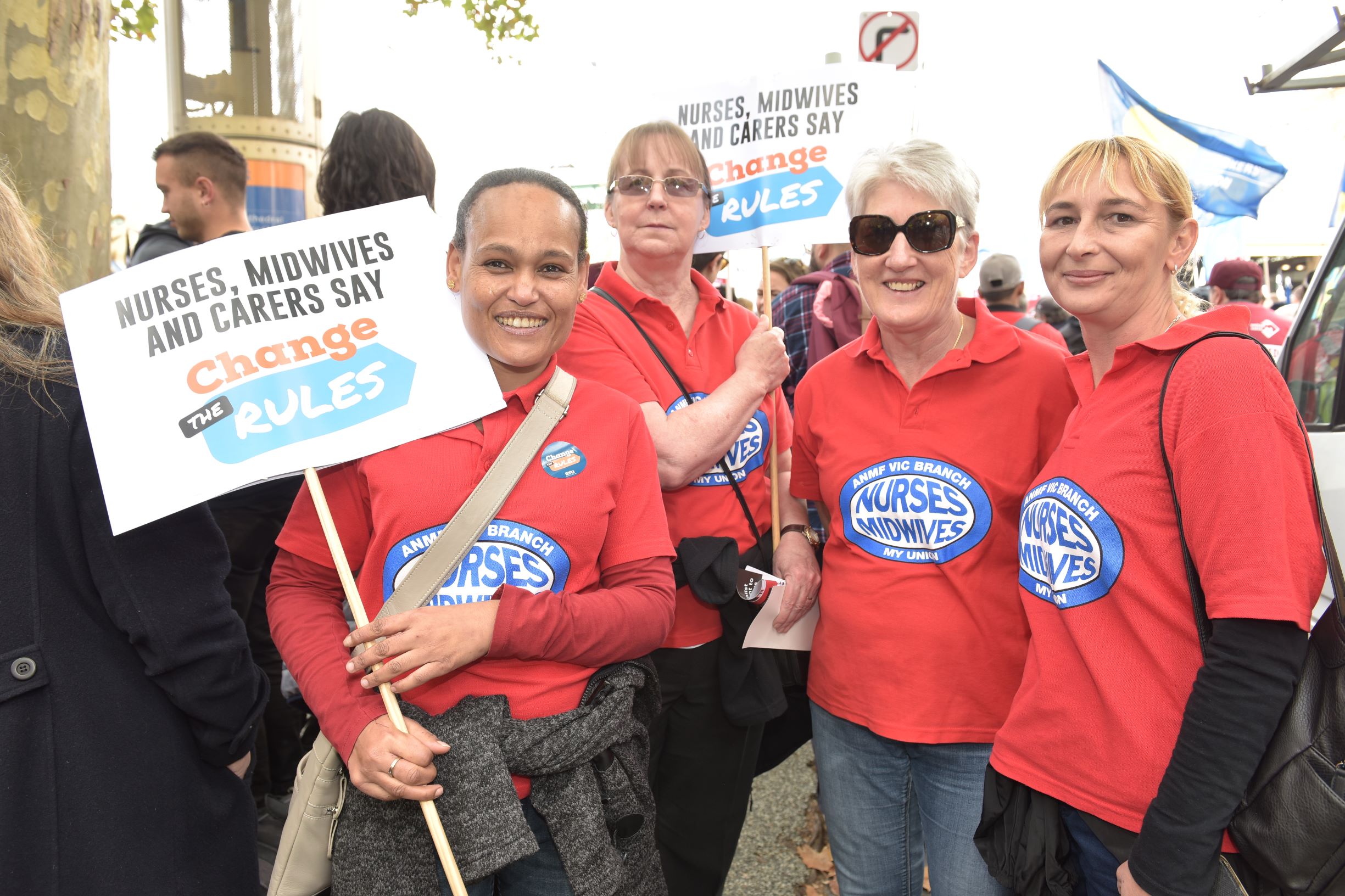
Image: Shutterstock
As part of ANMF (Vic Branch)’s work on our Reconciliation Action Plan (RAP) – and ahead of the referendum later this year on a Voice to Parliament – during National Reconciliation Week 2023 we are encouraging and supporting members to take some time to reflect on Australia’s shared cultures, histories and achievements, and to explore how each of us can contribute to achieving reconciliation.
Staff and elected officials of the Branch will be participating in or attending events during the week, and we encourage members to get involved as well. A growing list of official events can be found in the National Reconciliation Week 2023 calendar, but there are likely to be many more local or grassroots events in your area to keep an eye out for as well.
What is National Reconciliation Week?
National Reconciliation Week occurs every year from 27 May to 3 June. These dates commemorate two significant milestones in Australia’s reconciliation journey: the successful 1967 referendum, and the 1992 High Court Mabo decision respectively.
27 May 1967
Before 1967, Aboriginal and Torres Strait Islander peoples did not have the same rights as other Australians under the constitution, and many aspects of their lives were controlled by the state governments. These included the right to:
- Vote in state elections
- Marry whomever they chose
- Move to wherever they chose
- Own property wherever they chose
- Be the legal guardian of their own children
- Receive the same pay for the same work
- Drink alcohol
Because the state governments made these laws, Aboriginal or Torres Strait Islander people living in Queensland had different rights (none) compared with those who lived in New South Wales, for example.
On 27 May 1967, the nation’s most successful referendum saw more than 90 per cent of Australians vote to alter our constitution in order to recognise Aboriginal and Torres Strait Islander people in the Census and to give the Federal Government, instead of state governments, power to make uniform laws for Aboriginal and Torres Strait Islander people.
3 June 1992
On 3 June 1992, the Australian High Court delivered the Mabo decision, the culmination of Eddie Koiki Mabo’s challenge to the legal fiction of ‘terra nullius’ (land belonging to no one) and leading to the legal recognition of Aboriginal and Torres Strait Islander peoples as the Traditional Owners and Custodians of lands. This decision paved the way for Native Title.
National Sorry Day
The day before National Reconciliation Week, 26 May, is National Sorry Day, which was first held in Sydney in 1998 and is now commemorated nationally to remember and honour the Stolen Generations.
Be a Voice: National Reconciliation Week 2023 theme
Reconciliation Australia’s research shows large community support for the next steps in Australia’s reconciliation journey, including the Voice to Parliament (which ANMF says YES to), treaty making and truth-telling.
This year’s National Reconciliation Week theme, Be a Voice for Generations, urges all Australians to use their power, their words and their vote to create a better, more just Australia for all of us.
Reconciliation Australia CEO Karen Mundine says the theme calls on Australians to honour the work of generations past who fought for justice in Australia and to work together today to tackle the unfinished business of reconciliation for the generations to come.
‘There has long been a strong thread in Australian history of people striving to build a just society, Ms Mundine said. ‘Australian history has included many examples of non-First Nations Australians who stood with Aboriginal and Torres Strait Islander people during early strikes, protests and notably during the 1967 referendum.
‘Australia has a long record of inspiring allyship and solidarity to address centuries of racism and injustice. This National Reconciliation Week we urge all Australians to follow in this tradition to be a voice for generations, while also imagining a better country for future generations.’
These principles align with union principles of diversity, inclusion and collective voice, and social change to remove discrimination and to promote equitable access to health care.
A brief history of National Reconciliation Week
National Reconciliation Week started as the Week of Prayer for Reconciliation in 1993 (the International Year of the World’s Indigenous Peoples) and was supported by Australia’s major faith communities.
In 1996, the Council for Aboriginal Reconciliation launched Australia’s first National Reconciliation Week.
In 2001, Reconciliation Australia was established to continue to provide national leadership on reconciliation. Reconciliation Australia is an independent, not-for-profit organisation responsible for building and promoting reconciliation between Aboriginal and Torres Strait Islander peoples and other Australians.
In the same year, approximately 300,000 people walked across Sydney Harbour Bridge as part of National Reconciliation Week – and subsequently across bridges in other cities and towns – to show their support for reconciliation.
Today, National Reconciliation Week is celebrated in workplaces, schools, community organisations and groups, and by individuals Australia-wide.
How to participate in National Reconciliation Week
Visit the Reconciliation Australia website for more information and to discover what activities and events are taking place in your local area during National Reconciliation Week.
On a personal level, you can think about what you can do locally and take the time to learn about the rich Aboriginal and Torres Strait Islander cultures that exists in Australia.
And, importantly, find the time to talk with your family, friends and colleagues about why it’s important for all Australians to build respectful relationships with each other, and especially with Aboriginal and Torres Strait Islander peoples.




